Best AI Data Cleaning and Transformation Tools in 2025
December 9, 2024

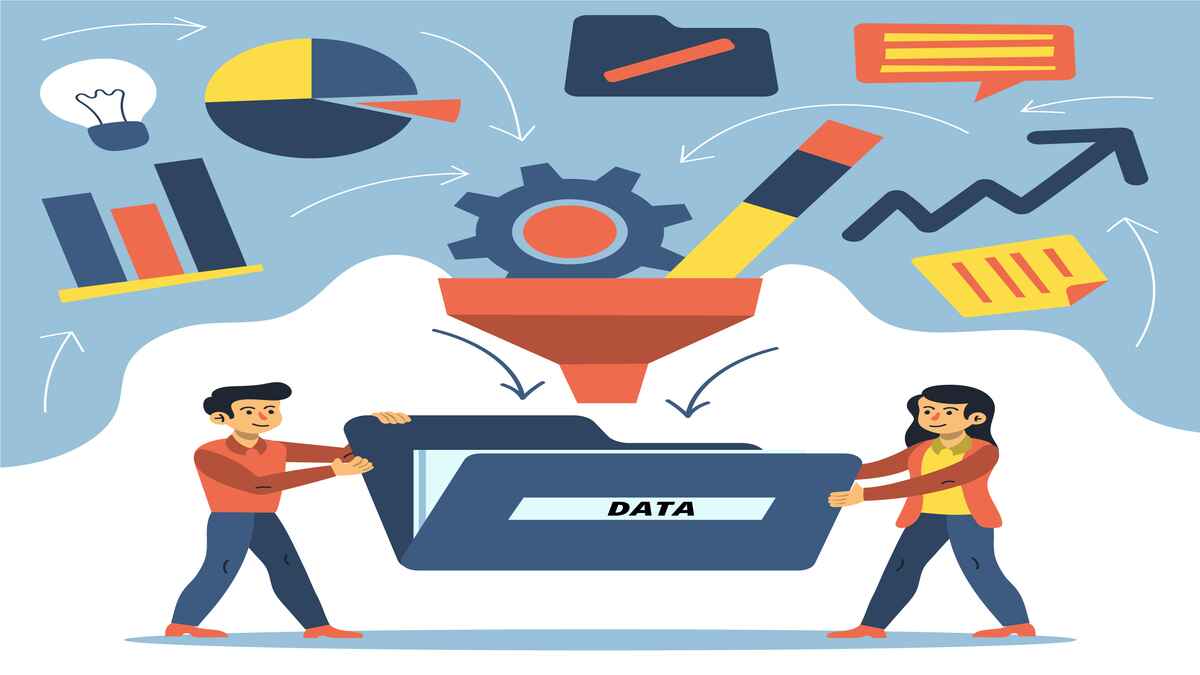
In today’s data-driven world, the quality and accuracy of data are paramount. AI-powered data cleaning and transformation tools have emerged as essential solutions to address the challenges associated with large and complex datasets. These tools leverage advanced algorithms and machine learning techniques to automate tedious and error-prone tasks, significantly improving the efficiency and effectiveness of data preparation. By automating data cleaning, imputation, normalization, and feature engineering, these tools enable organizations to extract valuable insights and make data-driven decisions with greater confidence. By utilizing AI interior design tools effectively, businesses can leverage data-driven insights to optimize their physical spaces, enhancing employee productivity, customer satisfaction, and overall business performance.
Data cleaning and transformation is a multi-step process that involves:
We are identifying and correcting errors, inconsistencies, and missing values in the data.
It converts raw data into a structured format suitable for analysis and modeling. This includes tasks like normalization, aggregation, and feature engineering.
Data, the lifeblood of AI, must be pristine to yield accurate and reliable insights. Data cleaning and transformation, therefore, is not just a preliminary step but a foundational one.
AI models are as good as the data they’re trained on. Only accurate or consistent data can lead to models that make accurate predictions or decisions.
Clean data helps models learn patterns more representative of the real world, improving their ability to generalize to new, unseen data.
High-quality data provides a solid foundation for AI systems to make informed decisions.
Data cleaning minimizes the risk of making poor decisions based on faulty information by eliminating errors and inconsistencies.
Bias in data can lead to biased AI models. By identifying and addressing biases, we can create AI systems that are fair and equitable.
Data cleaning and transformation ensure AI’s ethical development and deployment.
Automated data cleaning and transformation tools can significantly reduce the time and effort required to prepare data for analysis.
Organizations can accelerate their time to insights by streamlining the data preparation process.
AI has emerged as a powerful tool to streamline and enhance the process of data cleaning and transformation. By automating many tedious tasks and applying advanced techniques, AI can significantly improve the quality and efficiency of data preparation.
Here’s a deeper dive into how AI is revolutionizing data cleaning and transformation:
AI algorithms can identify unusual patterns or outliers in data, flagging potential errors or inconsistencies.
AI can verify data against predefined rules and standards, ensuring data integrity.
AI can use predictive models to estimate missing values based on existing data patterns.
Advanced machine learning algorithms can fill in missing data, especially in complex datasets.
AI can automatically apply normalization and standardization techniques to ensure data consistency.
AI can facilitate analysis and modeling by transforming data into a standardized format.
AI can generate new features from existing ones, capturing hidden insights and improving model performance.
AI can identify the most relevant features for a given task, reducing dimensionality and improving model efficiency.
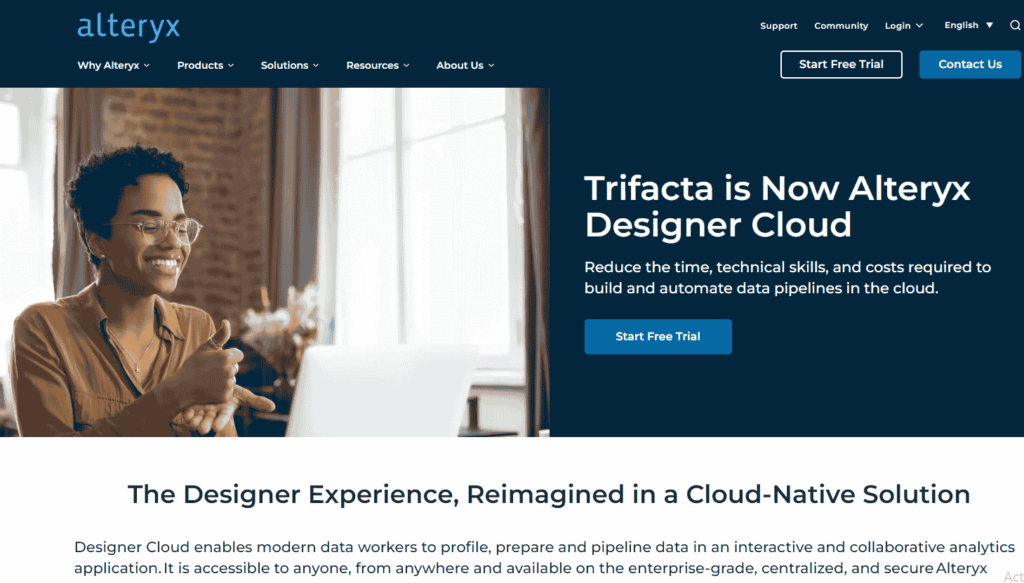
Trifacta Wrangler offers a comprehensive solution for data wrangling, including data cleaning and transformation. It’s built for ease of use with a visual interface and integrates with multiple data sources.
Offers free trials; contact for pricing (based on enterprise needs)
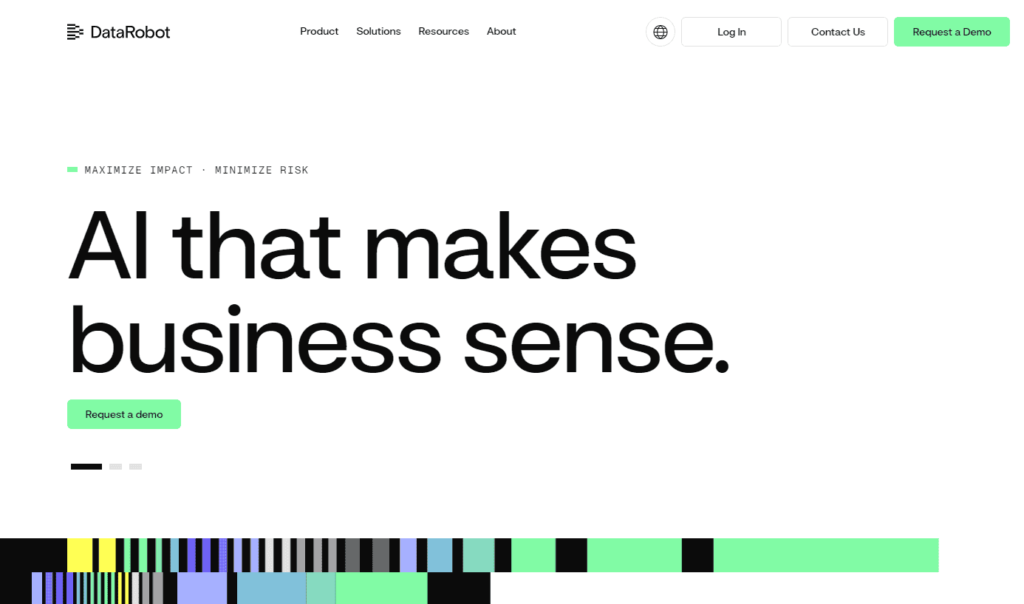
DataRobot provides an end-to-end AI platform for automating data preparation, including cleaning, transformation, and modeling.
Contact for pricing (enterprise-focused)
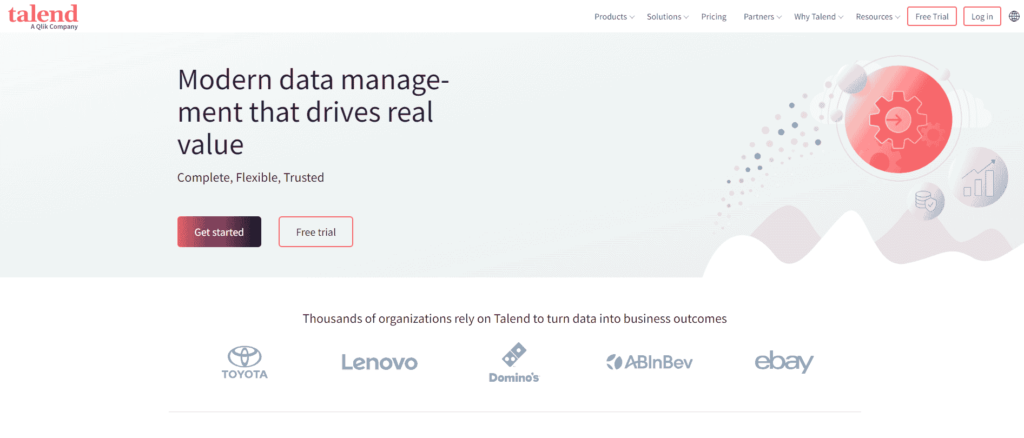
Talend Data Fabric is an integrated data platform that provides a suite of tools for data integration, transformation, and cleaning. It allows users to work with large datasets effectively.
Free (Community Edition); Paid options start at $1,170/year
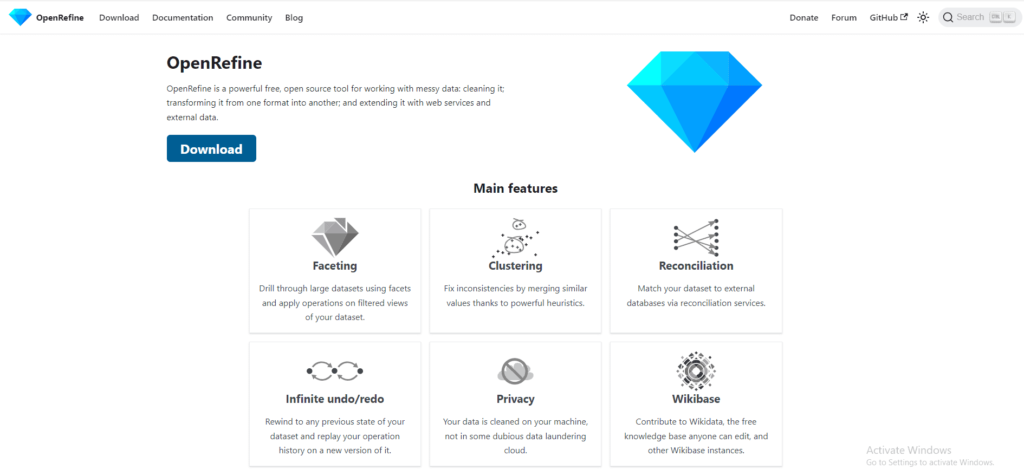
OpenRefine is an open-source data cleaning and transformation tool suited for messy data. It allows for data exploration, cleaning, and transformation with a user-friendly interface.
Free
Microsoft Power BI’s data prep features, such as Power Query, transform and clean data before it’s used for reporting and analytics.
Free (with limited features); Pro at $9.99 per user/month
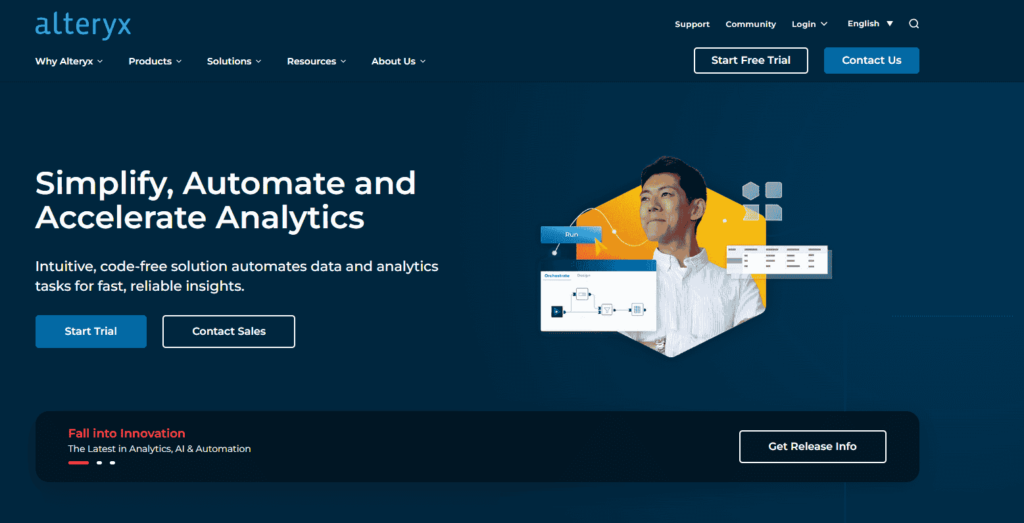
Alteryx Designer is a comprehensive data preparation, blending, and analytics tool. It offers a drag-and-drop interface, allowing users to clean, transform, and analyze datasets without extensive coding knowledge.
Starts at $5,195 per user per year. Custom enterprise pricing is available.
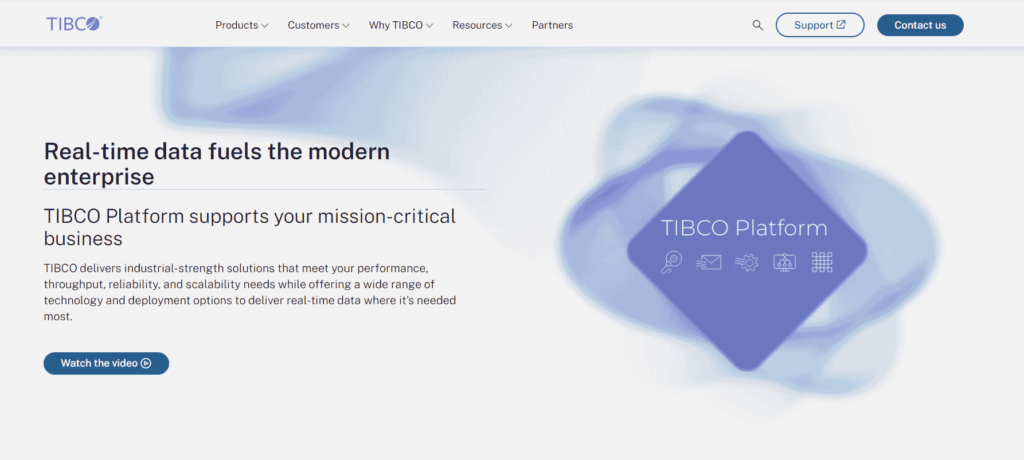
TIBCO Clarity is a cloud-based data preparation tool designed to cleanse, standardize, and enrich data. It helps businesses ensure accurate and consistent data for analysis and decision-making.
Available upon request with flexible subscription-based models.
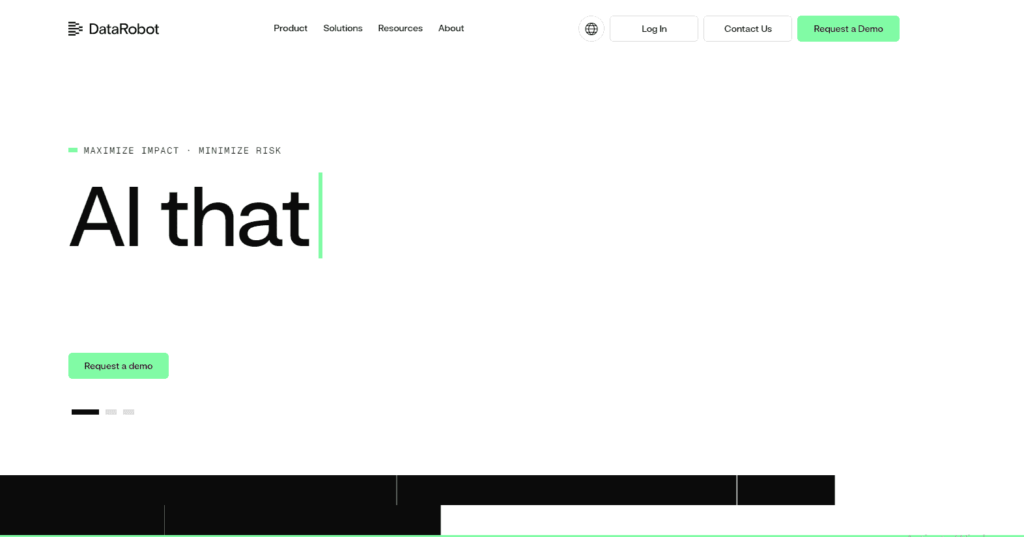
Paxata offers a self-service data preparation tool powered by machine learning. It enables users to discover, clean, and transform data for analytics with minimal manual effort.
Customized pricing is available upon request.
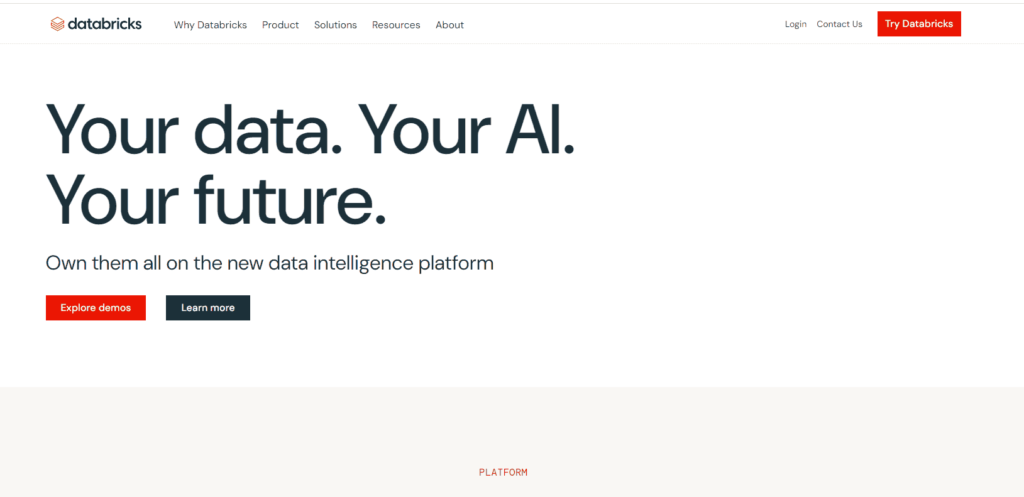
Apache Spark, supported by Databricks, is a powerful analytics engine for big data processing and transformation. It provides capabilities for cleaning and transforming data in real time using distributed computing.
Databricks pricing starts at $0.15 per DBU (Databricks Unit), with custom enterprise packages available.
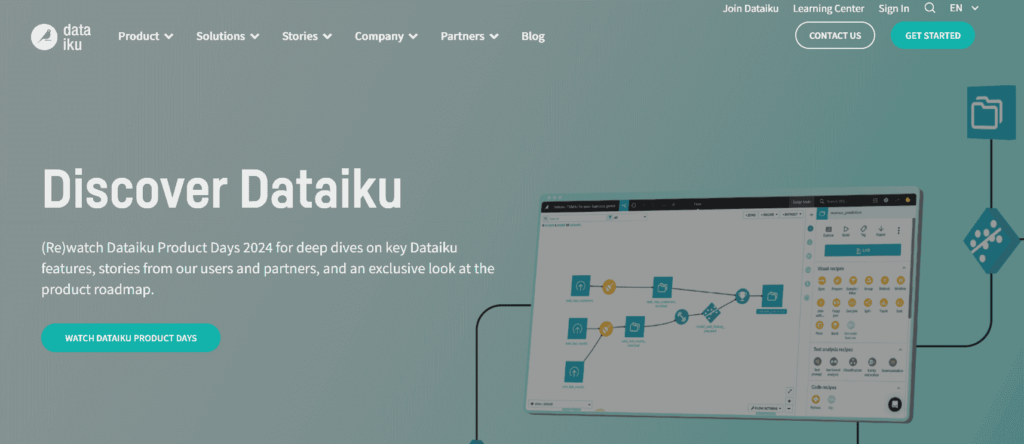
Dataiku is an AI and machine-learning platform that provides data preparation, cleaning, and transformation tools. It supports collaboration among data professionals with an intuitive interface.
Free plan for individual users; custom pricing for teams and enterprises.
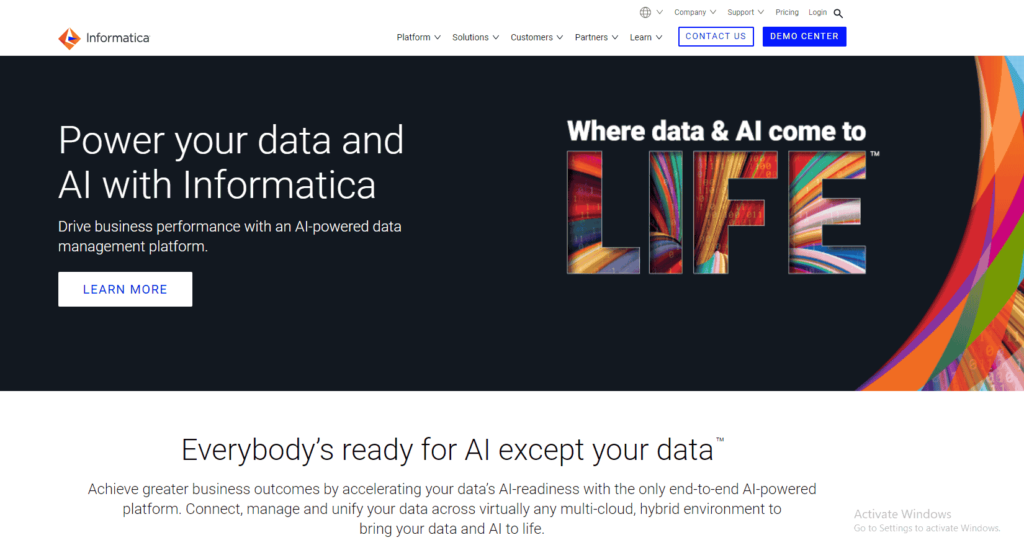
Informatica Data Quality is a comprehensive platform that ensures data accuracy and consistency. It uses AI-driven tools for profiling, cleansing, and enriching data across multiple systems.
Custom pricing based on usage and organization size.
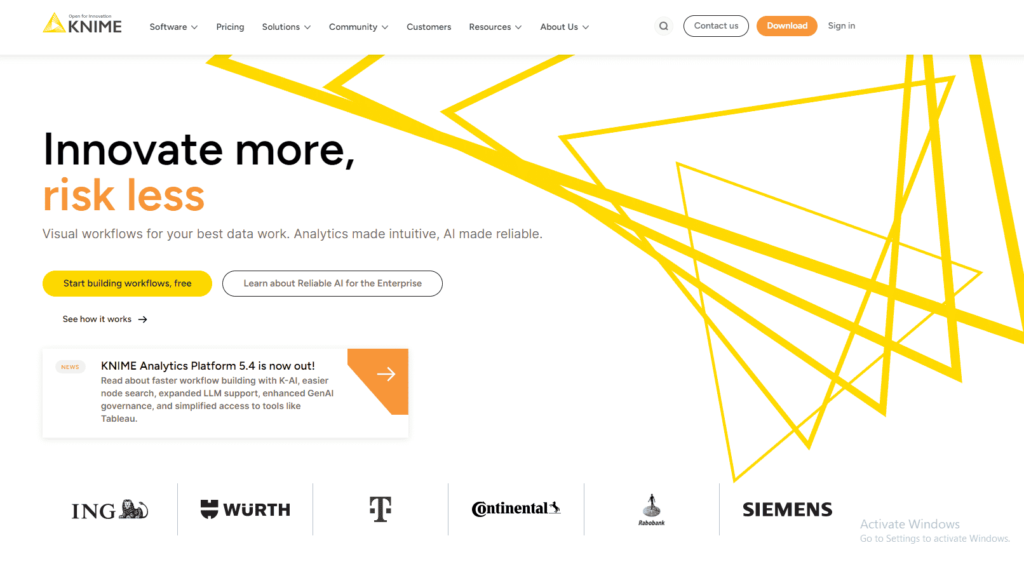
KNIME Analytics Platform is open-source data analysis, cleaning, and transformation software. It offers a visual workflow builder to process data without writing code.
Free for the base platform; enterprise pricing available.
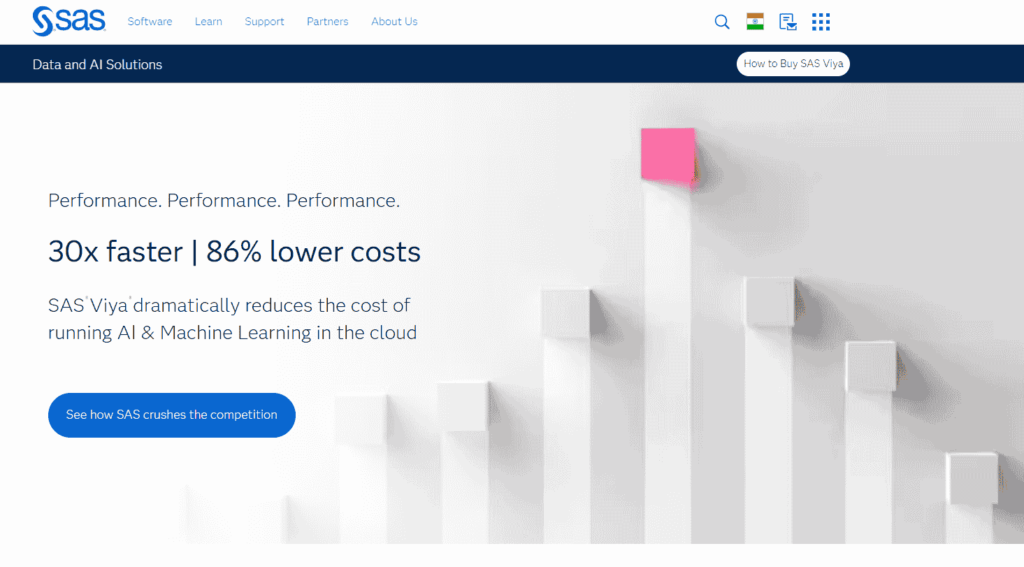
SAS Data Preparation allows users to quickly clean, profile, and transform data using AI-driven recommendations. Its intuitive platform ensures consistent and reliable data for analysis.
Custom pricing is available upon request.
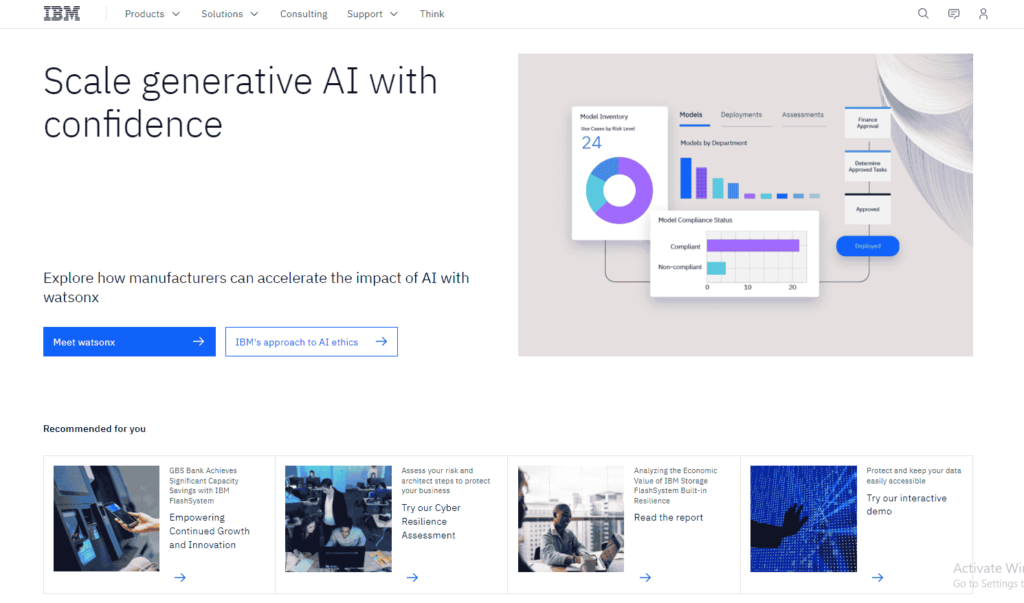
IBM Data Refinery is part of IBM Cloud Pak for Data. It enables businesses to clean, prepare, and enrich their data using built-in machine learning and automation tools.
Pay-as-you-go pricing model with custom packages available.
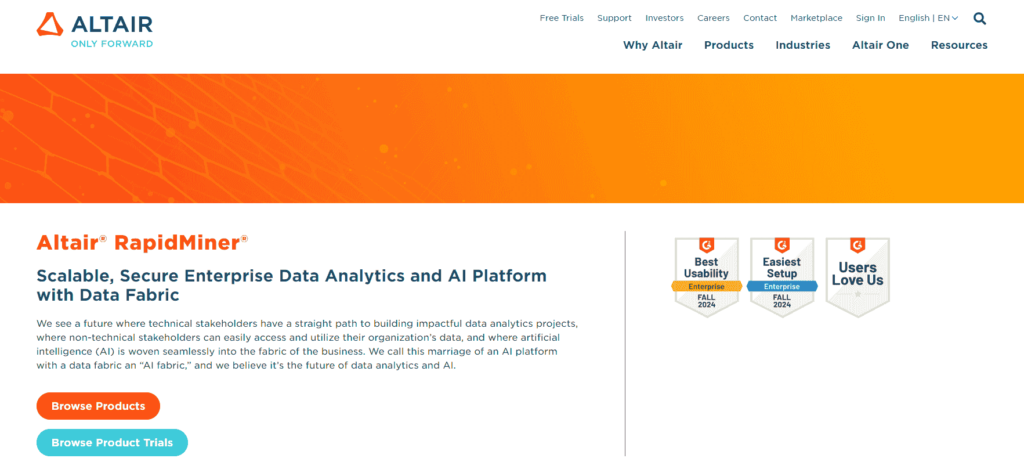
RapidMiner provides an end-to-end platform for data science and machine learning. It includes data cleaning, transformation, and preparation tools with a focus on ease of use and automation.
Free version available; enterprise packages start at $2,500 per year.
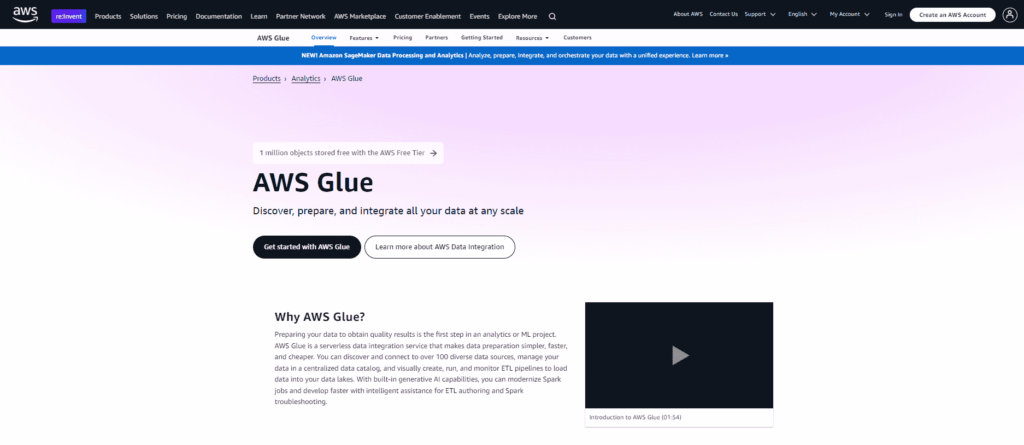
AWS Glue is a serverless data integration tool designed to prepare, clean, and transform data for analytics and machine learning. It automates schema discovery and manages the data workflow efficiently.
Pay-as-you-go model based on data processing units (DPUs).
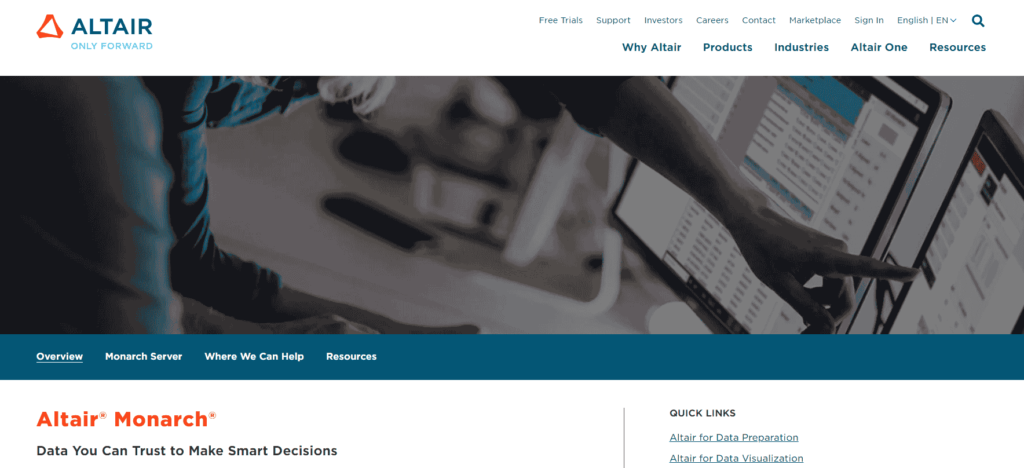
Altair Monarch is a self-service data preparation tool that allows users to extract, clean, and transform data from various sources, including unstructured formats like PDFs.
Starts at $5,000 per year, with enterprise pricing available.
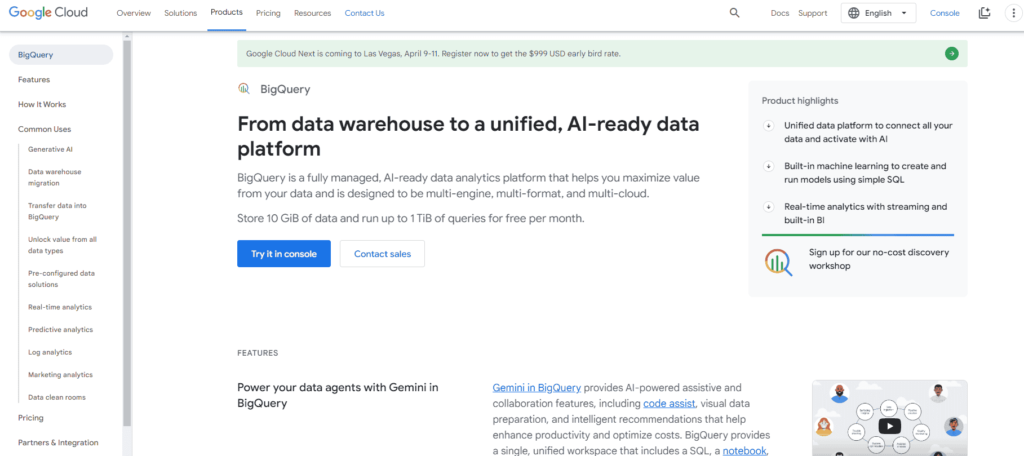
Google Cloud Dataprep is an intelligent, cloud-based data preparation service powered by Trifacta. It simplifies cleaning and transforming data for analytics and machine learning workflows.
Pay-as-you-go pricing based on usage.
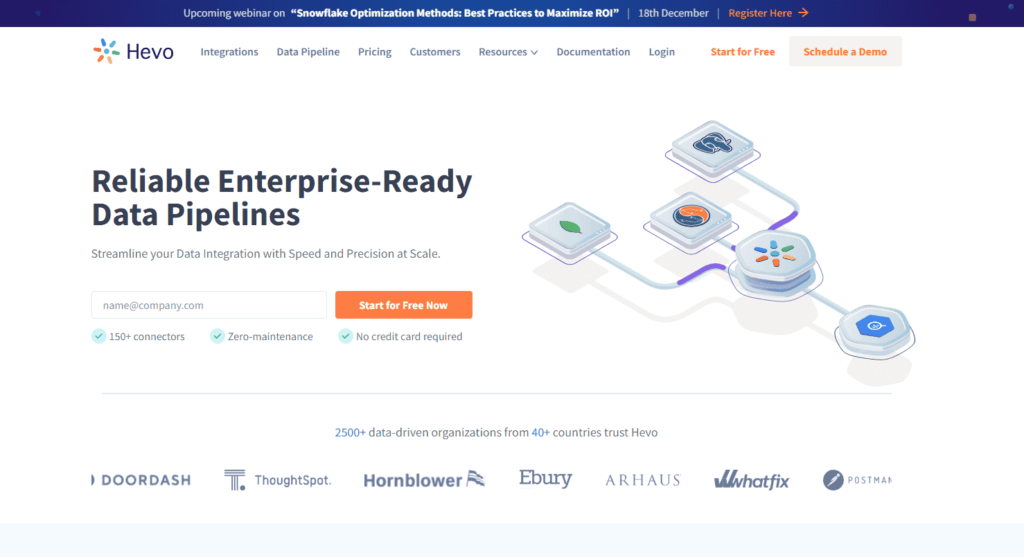
Hevo Data is a no-code data pipeline platform that helps users collect, clean, and transform data from various sources in real time. It ensures high data reliability and consistency.
Free trial available; pricing starts at $239 per month.
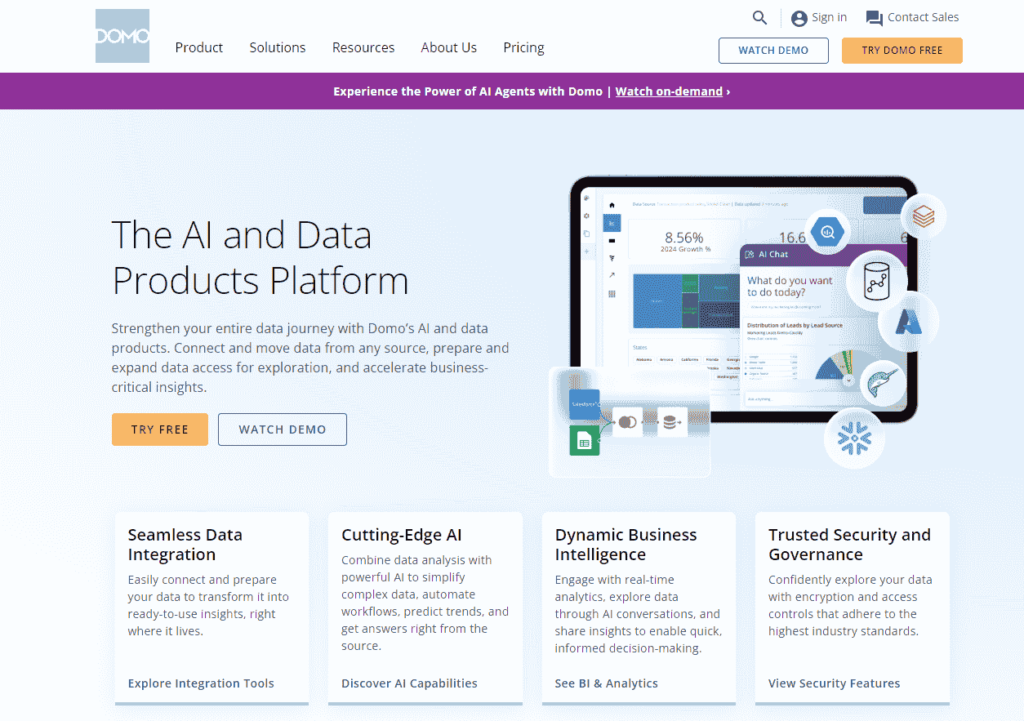
Domo is a cloud-based business intelligence platform that offers data preparation, cleaning, and transformation features. It enables businesses to connect, transform, and visualize data from multiple sources.
Starts at $83 per user per month; enterprise pricing is available.
AI-powered data cleaning and transformation offers myriad benefits that can significantly enhance the overall quality and efficiency of data-driven processes.
AI algorithms can identify and correct errors, inconsistencies, and outliers with greater precision than manual methods.
By automating routine tasks, AI reduces the risk of human error, ensuring data accuracy.
AI can automate repetitive tasks such as data validation, normalization, and imputation, saving significant time and effort.
AI enables organizations to gain insights more quickly by accelerating data preparation.
AI can proactively identify and address data quality issues, such as missing values, inconsistencies, and outliers.
AI can ensure data consistency across different sources and formats.
Clean and accurate data is the foundation for building robust and accurate AI models.
By removing noise and bias from data, AI can improve the predictive power of models.
Automation of data cleaning and transformation tasks can reduce labor costs.
AI-powered tools can streamline processes, leading to increased efficiency and cost savings.
AI needs help with unstructured data like text, images, and audio, requiring advanced techniques and significant computational resources.
Real-world data often contains noise, missing values, and inconsistencies, making it challenging for AI algorithms to process accurately.
AI algorithms may need more domain knowledge to make informed data cleaning and transformation decisions, especially in specialized fields.
Human experts are often needed to guide AI algorithms and interpret their results.
Advanced AI techniques like deep learning can be computationally expensive, requiring powerful hardware and significant processing time.
Scaling AI-powered data cleaning and transformation to large datasets can be challenging, especially for organizations with limited computational resources.
AI algorithms often handle sensitive data, raising concerns about privacy and security.
Adhering to data protection regulations, such as GDPR and CCPA, is crucial when using AI for data cleaning and transformation.
AI-powered data cleaning and transformation tools have features designed to streamline and enhance the data preparation process. Here are some of the key features:
Automatically detects the data type of each column (e.g., numerical, categorical, text).
Identifies missing values and calculates the percentage of missing data.
Flags outliers or anomalies that may affect data analysis.
It uses statistical methods like mean, median, or mode to fill in missing values.
Employs machine learning algorithms to predict missing values based on patterns in the data.
Leverages domain knowledge to impute missing values with appropriate values.
Allows users to define custom rules to validate data quality.
Ensures data consistency across different sources and formats.
Verifies the accuracy and completeness of data.
Transforms data to a common scale.
Creates new features from existing ones to improve model performance.
Combines data from multiple sources into a unified dataset.
Machine learning algorithms are used to identify and flag anomalous data points.
Removes noise and errors from data using techniques like denoising and filtering.
Combines data from multiple sources, resolving inconsistencies and conflicts.
Gain a deep understanding of the data’s context and the specific business problem it aims to solve.
Conduct a thorough data profiling to identify data types, missing values, outliers, and inconsistencies.
Use accuracy, completeness, consistency, and timeliness to assess data quality.
Implement data validation rules to ensure data integrity and consistency.
Address missing values, outliers, and inconsistencies using appropriate techniques.
Standardize data to a common scale.
Create new features from existing ones to improve model performance.
Continuously monitor and refine the data cleaning and transformation process.
Use feedback from model performance to identify areas for improvement in data preparation.
Involve domain experts to guide the data cleaning and transformation process.
Conduct regular quality assurance checks to ensure the accuracy and reliability of the results.
Deep learning models, especially neural networks, are becoming increasingly powerful for complex data-cleaning tasks, such as anomaly detection, noise reduction, and imputation.
Combining multiple machine learning models can improve data cleaning and transformation accuracy and robustness.
AI algorithms can automatically generate new features from existing ones, potentially improving model performance.
AI can identify the most relevant features for a specific task, reducing dimensionality and improving efficiency.
AI-powered tools can clean and transform data in real time, enabling faster insights and decision-making.
AI models can continuously learn and adapt to changes in the data stream.
AI models can explain their reasoning for data cleaning and transformation decisions, improving trust and accountability.
Simpler models, such as decision trees and linear regression, can be made more interpretable to understand the underlying logic.
AI can monitor data quality in real time, identifying and addressing issues proactively.
AI can track the origin and transformations of data, ensuring data provenance and accountability.
AI-powered data cleaning and transformation tools have revolutionized how organizations handle and process data. By automating routine tasks, improving data quality, and accelerating the data preparation process, these tools empower organizations to make informed decisions and gain a competitive edge. We can expect even more sophisticated tools to handle increasingly complex datasets and deliver more accurate and reliable insights as AI advances. By embracing AI-powered data cleaning and transformation, organizations can unlock the full potential of their data and drive innovation.
